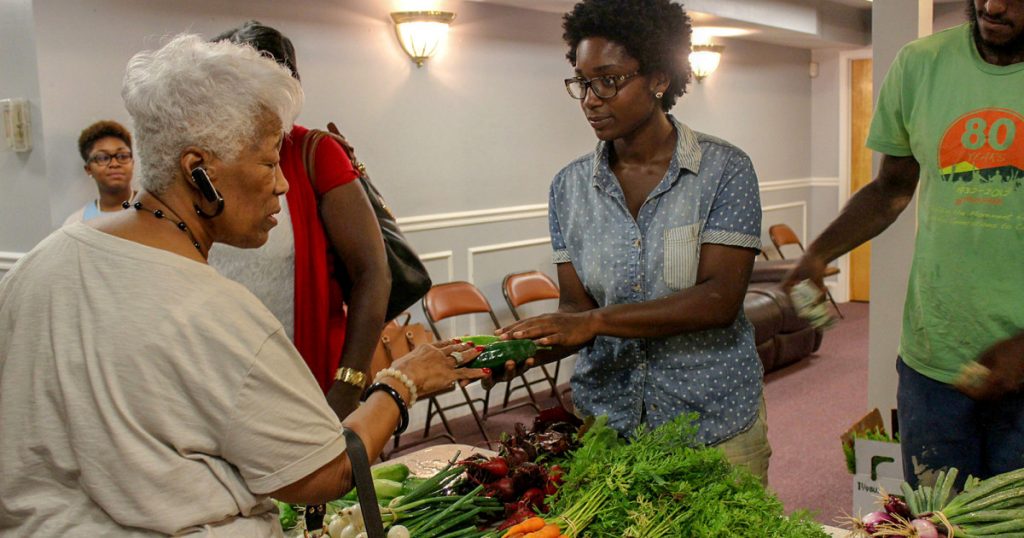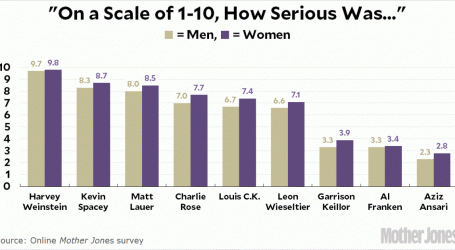How “Greens, Beets, and Tomatoes” Turned Around This Historically Black Church
Members of the Pleasant Hope Baptist Church at one of the church’s farmers markets. Black Church Food Security Network
Looking for news you can trust?Subscribe to our free newsletters.
A few years ago, the Rev. Dr. Heber Brown III, the pastor of Baltimore’s historically African American Pleasant Hope Baptist Church, noticed a problem in his congregation: Many of the members were suffering from diet-related diseases. The problem is larger than just Pleasant Hope: About 13 percent of African American adults have diabetes, and an astonishing 40 percent experience high blood pressure.
Brown knew his community needed healthier food, but fresh produce was too expensive. “I had what some would call a divine discontent,” he recalls. “I was so frustrated with that dynamic of seeing the food that we needed and not being able to afford it.”
“I was so frustrated with that dynamic of seeing the food that we needed and not being able to afford it.”So in 2011, he planted a vegetable garden on his church property and gave away the harvest to his congregants. Right away, churchgoers reported that they enjoyed cooking with fresh fruits and vegetables and were feeling healthier, and Brown noticed that attendance at his Sunday services improved. “Initially I thought it was because people finally were recognizing what a great preacher I am,” he jokes. “But it had nothing to do with the preaching and more so to do with the greens, beets, and tomatoes.”
His idea took off and evolved into the Black Church Food Security Network, a group of 14 Baltimore churches that offer discounted produce to their communities. Many grow food in their own church gardens; some arrange farmers markets through Brown’s Soil to Sanctuary program, which connects black farmers with historically black churches.
On this week’s episode of the Mother Jones food politics podcast, Bite, Brown talks about the connection between faith and food, his favorite farmers market treats, and how his program unexpectedly changed his own diet:
Brown also shared a recipe—a healthier take on nachos developed by 10-year-old Naima, who attends a school at Pleasant Hope Baptist Church and regularly visits the church’s farmers market. This recipe doesn’t require any cooking, so it’s perfect for kids.
Ten-year-old Naima does a cooking demonstration at the farmers market at the Pleasant Hope Baptist Church in Baltimore.
Black Church Food Security NetworkNaima’s Veggie Black Bean Nachos
Ingredients
8 oz bag of tortilla chips
1 can of black beans
1/2 – 3/4 cup of chunky salsa
1 teaspoon of cumin
3/4 teaspoon of turmeric
3/4 teaspoon of garlic
Chopped raw veggies of your choice: spinach, broccoli, cauliflower, corn, etc.
Directions
Place tortilla chips on plate and set aside. Place beans in a strainer and rinse with water until all the bubbles have disappeared and water runs clear. Add beans to bowl. In the same bowl add salsa, cumin, turmeric, and garlic. Mix well. Scoop bean mixture over chips and top with chopped veggies.
Pleasant Hope Baptist Church
Black Church Food Security Network




